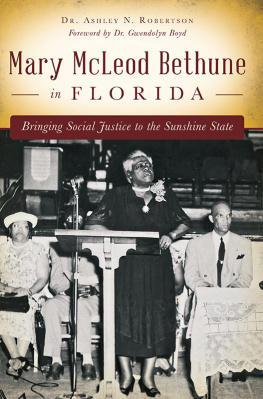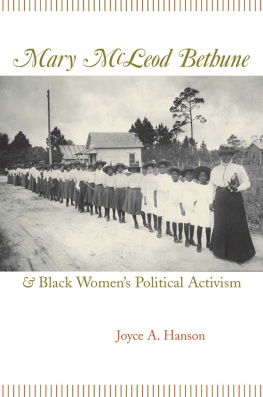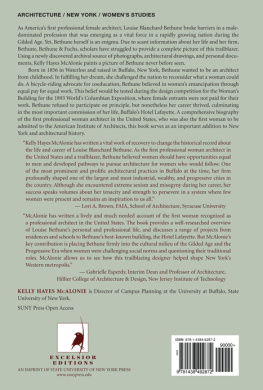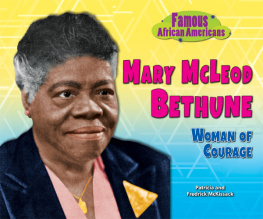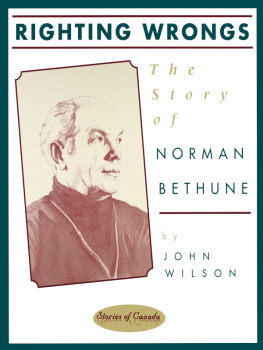

Published by The History Press
Charleston, SC 29403
www.historypress.net
Copyright 2015 by Dr. Ashley N. Robertson
All rights reserved
First published 2015
e-book edition 2015
ISBN 978.1.62585.524.4
Library of Congress Control Number: 2015936220
print edition 978.1.62619.983.5
Notice: The information in this book is true and complete to the best of our knowledge. It is offered without guarantee on the part of the author or The History Press. The author and The History Press disclaim all liability in connection with the use of this book.
All rights reserved. No part of this book may be reproduced or transmitted in any form whatsoever without prior written permission from the publisher except in the case of brief quotations embodied in critical articles and reviews.
In loving memory of my first historian and the greatest storyteller who ever lived, my granny Mrs. Bessie Robertson.
Contents
Foreword
The Delta girl is one who has been given the opportunity of education and broad development.
In 1923, at the fifth national convention, Mary McLeod Bethune became an honorary member of the Delta Sigma Theta Sorority. It was in that same year that her all-girls school in Daytona Beach, Florida, merged with Cookman Institute to become what was later known as Bethune-Cookman College (B-CC). Founded in 1904 as the Daytona Literary and Industrial School for the Training of Negro Girls under Marys visionary leadership and dedication, with the merger she became one of the first female African American college presidents. The year 1923 was a pivotal point for Bethune, who was the first child born free to formerly enslaved parents. For nearly two decades, she toiled to provide quality education in segregated Florida while also rising through the ranks as a leader in the clubwomens movement. In 1924, she became president of the National Association of Colored Womens Clubs (NACW). As president, she reinforced NACWs antipoll tax stance, strengthened its international relations and established its first national headquarters in Washington, D.C.
This critical study by Dr. Ashley Robertson reveals the depth of the leadership of Mary McLeod Bethune in the state of Florida. Many know Florida for its beautiful sandy beaches and its tourist attractions, but few are aware of the intense racial conditions through which Bethune navigated. This work uncovers her use of Bethune-Cookman College as a political space to take a stance against segregation, her fearless leadership in a male-dominated society and how she galvanized women for change in her local community. Dr. Robertson also makes readers keenly aware of Bethunes role as a premier civil rights and womens rights activist dating back to the early 1900s. As the president of Alabama State University and a past national president of Delta Sigma Theta Sorority Inc., I am surely a daughter of Mary McLeod Bethune in many ways. Her dynamic leadership in the clubwomens movement and her commitment to the education of African Americans cleared a path for leaders such as myself. We stand on the shoulders of Soror Bethune.
As we move forward in such an important time in history, scholarship such as this book will be a guide for our movements. We can examine how Bethune attracted the support of influential leaders to push the agenda of educational equality so that we might work to close educational gaps in the twenty-first century. We can also learn from her successes in organizing African American women to gain suffrage and take a stance against discrimination to disrupt the overturning of critical pieces of the Voting Rights Act of 1965. There are lessons to be learned from this dynamic leader, and this work should be in the hands of all agents for change standing for justice.
Dr. Gwendolyn Boyd
Acknowledgements
For I know the plans I have for you, declares the Lord, plans to prosper you and not to harm you, plans to give you a hope and a future.
Jeremiah 29:11
Before any words are said, I would like to give honor to Jesus Christ, my Lord and Savior, for all that He has done. I am truly blessed to see the day when someone from little Oxford, North Carolina, would receive a doctorate and write a book. It was all in His plan, and I am grateful. I am also thankful for my angel, Mrs. Bessie Robertson, who left in 2004, but her words That girl gone be something will always be my guide to keep marching on for excellence. Thank you, Granny, for speaking positive over my life, for being my very first historian and for passing along to me the gift of storytelling. You are missed.
I would like to thank my mother, Diane, for her continued prayers and encouragement. I will never forget when you said, Aint nothing holdin you back! Not even a stop sign! You continue to give me courage, and I appreciate you. Thanks to my daddy, John, for always being a listening ear and for being a strong writer. You laid the foundations for this. To my sister and best friend, April Joy, I thank you for always being my biggest supporter. Since sixth grade weve held each other down. Dr. Kimberly Brown, you are truly a Queen Like Me, and I can never repay you for assisting me with the direction of this book. My siStar Princess Black, you are history in the making, and your activism is an inspiration to me.
This book would not have been possible without those in Florida who have not only become my family but have also encouraged me to write this work and share the lift of my (s)hero. I truly thank my boss, Dr. Tasha Youmans, for her continued support and for giving me so many resources to make this happen. You are the best! Thanks to Mr. Albert McLeod Bethune Jr. for being my biggest advocate and for sharing his wealth of knowledge on the life of his Mother Dear. Ms. Patricia Pettus and Mrs. Sandra Johnson, you will never know how much I appreciate both of you. To the faculty/staff/students of Bethune-Cookman University and the Bethune Foundation, I appreciate you all for giving me the opportunity to fulfill my mission as a historian.
While writing this book there were people who went out of their way to provide me with archival materials and valuable insight, and without them this book would not have the depth that it has. Thanks to Dr. Anthony Dixon (John G. Riley Museum), Aisha Johnson (University of North Florida) and my dear friends John Fowler and Joy Kinard at the Mary McLeod Bethune Council House. Dr. Ida Jones, thanks for encouraging me to write this book and for all that you do at Moorland-Spingarn Research Center. I was given the opportunity to interview people who knew Mrs. Bethune, and I am grateful to Ms. Locklear, Mr. Lucas, Mr. Bethune and Dr. Higgins for sharing their personal stories about what Mrs. Bethune meant to them. I pray that God continues to bless you all with excellent health and memory. Special thanks also to my mentors and pioneers in the field of history and African American studies Dr. Elizabeth Clark-Lewis and Dr. Valethia Watkins.
I know that Im going to forget someone, but know that I love you all. I want to thank Aunt Mary; Aunt Carolyn; Uncle Pete; Uncle Lee; Uncle Larry; Cousin Faye; Cousin Cassandra; Cousin Marie; Cousin Whitney Marie; Cousin Brent; God babies Destiny and DeAndre; Cousin Brandon; Cousin Derek Lalisco; God mommy Rosa; and God sisters Jessica, Latonya and Felicia for keeping me grounded. Family, I love you. My sisters Nerissa, Cliffordette, Gala, Kendra, Ava, Donna, Tiara, Tiffany, Amanee, Jerilyn, Cletra, Jessica, Shatira, Carla, Ronda, Cousin Tanya and Stacey, you all are the best friends a girl could have. To my spiritual family, Uncle Bishop, Aunt Daisy, Pastor Natashia, Pastor Dawson, First Lady Robinson and Bishop Robinson, I thank you for all of your prayers and prophetic words youve spoken into my life.
Next page
